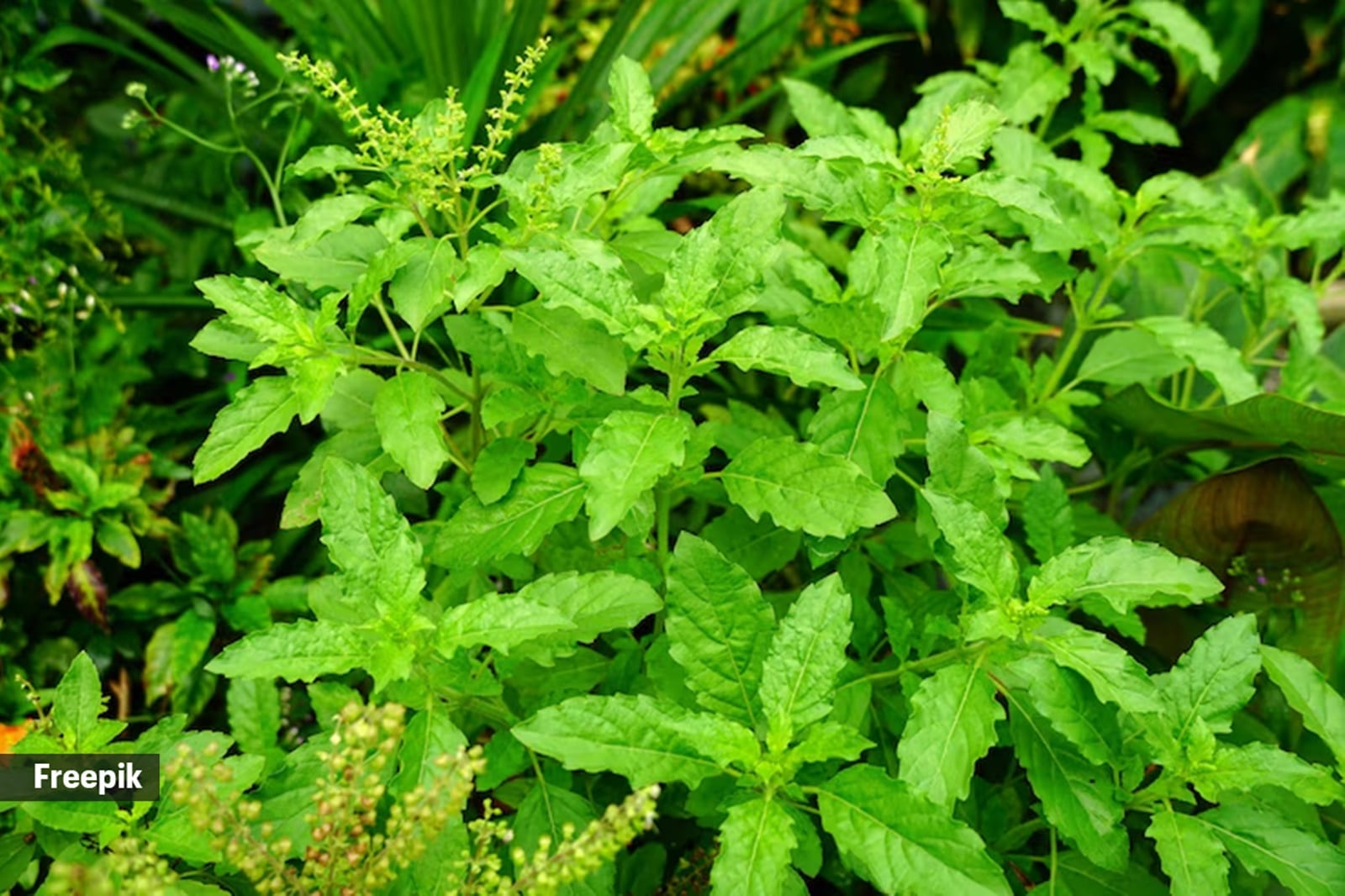Who should avoid consuming tulsi water?
Revered as a sacred plant in India since ancient times, tulsi (Ocimum tenuiflorum) has long been celebrated for its incredible medicinal properties. While its therapeutic uses are manifold, ranging from treating respiratory ailments to boosting immunity, one of the simplest and most accessible ways to harness tulsi’s powerful benefits is by drinking tulsi water.
What is tulsi water and how is it made?
Kanikka Malhotra, consultant dietician and certified diabetes educator, explains, “Tulsi water is a beverage made by infusing holy basil (tulsi) leaves in water. Simply add a few fresh tulsi leaves to a glass or pitcher of water and let it steep for 10-15 minutes. You can also simmer the leaves for a few minutes on low heat, but be careful not to boil them for too long as it can diminish some of the potential benefits.”
This fragrant infusion, made by steeping fresh tulsi leaves or dried powder in hot water, has emerged as a popular beverage choice for those seeking to improve their overall well-being naturally.
Rich in antioxidants, vitamins, and other beneficial compounds, tulsi water is touted as a panacea for a wide array of health concerns. “As the world embraces holistic living and seeks alternatives to conventional medicine, this ancient Ayurvedic elixir is gaining newfound recognition for its potential to nourish the body, calm the mind, and promote longevity,” Malhotra says.

Benefits of consuming tulsi water
Malhotra lists the following benefits of drinking tulsi water:
Immune Booster
Tulsi is considered an adaptogen, meaning it helps the body adapt to stress and maintain balance. It also has immunomodulatory properties, which means it might enhance the body’s immune response. These properties could potentially help fight off infections and illnesses, keeping you feeling your best.
Stress Reliever
The adaptogenic properties of tulsi come into play here as well. By helping your body adapt to stress, tulsi water may also promote feelings of calmness and relaxation. This can be particularly beneficial for managing chronic stress, which can have a negative impact on overall health.
Digestive Aid
Tulsi is believed to have carminative properties, which means it may help reduce gas and bloating. Additionally, some studies suggest it may improve gut motility, aiding digestion and promoting a healthy digestive system.
Respiratory Relief
Traditionally, tulsi leaves have been used to alleviate respiratory issues like coughs, colds, and asthma. Tulsi may possess expectorant properties, helping expel phlegm and ease congestion. Its anti-inflammatory properties might also soothe a sore throat or irritated airways.
Antioxidant Powerhouse
Tulsi contains various antioxidants like flavonoids and polyphenols. These antioxidants help fight free radical damage in the body, which is linked to various chronic diseases. While more research is needed, consuming tulsi water could potentially contribute to your overall antioxidant defense system.
Who should avoid consuming tulsi water?
Malhotra asserts, “Tulsi may have blood-thinning properties. If you have a bleeding disorder or take blood-thinning medications like Warfarin, consuming tulsi water could increase your risk of bleeding. It’s best to avoid it or consult your doctor before incorporating it into your routine.”
There isn’t enough scientific evidence on the safety of tulsi water during pregnancy or breastfeeding. It might stimulate uterine contractions, potentially causing complications. To be on the safe side, pregnant and breastfeeding women should avoid tulsi water.
Some individuals might be allergic to tulsi or members of the Lamiaceae (mint) family, says Malhotra. “If you experience any allergic reactions like rash, itching, or swelling after consuming tulsi water, discontinue use and consult your doctor.”
No Byline Policy
Editorial Guidelines
Corrections Policy
Source
